While Seoul has its share of cultural attractions, if you want to learn more about Korean history and culture, a trip to Gyeongju is a must. We like to present pockets of cultural destinations where visitors can catch a glimpse of Korea’s splendid past remain.
One such destination is Gyeongju – the capital of the ancient Kingdom of Silla, home of some of the best Buddhist art in the Far East.
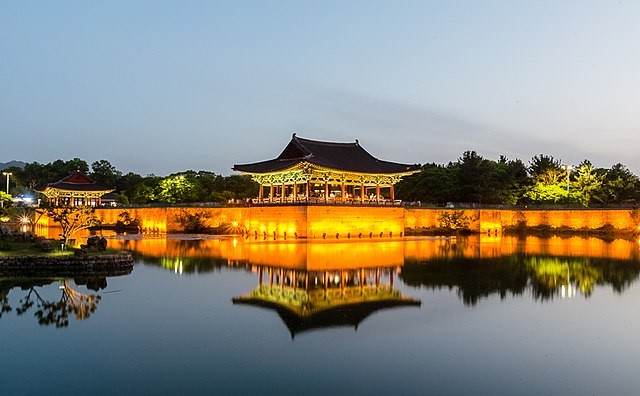 |
| Donggung Palace and Wolji Pond in Gyeongju. Photo: Wikimedia Commons |
Home of World’s Cultural Heritage
Different from other dynamic and exciting cities like Seoul or Busan. what visitors feel as soon as they arrive in Gyeongju is the ancient serenity from the scenery, architecture, or even the atmosphere.
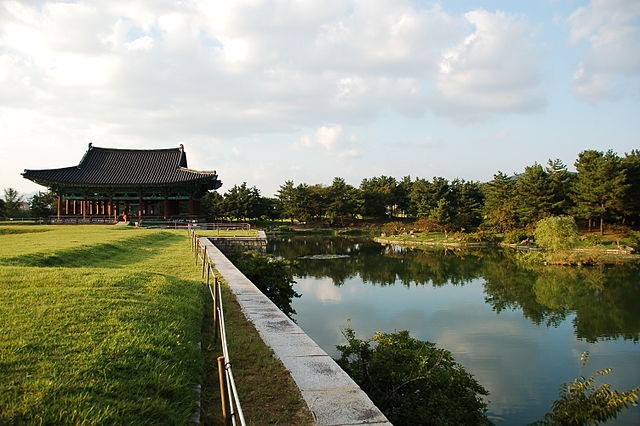 |
| Gyeongju National Park. Photo: Wikimedia Commons |
It is a piece of history, because this place was once the ancient capital of Korea under the illustrious Silla dynasty – the dynasty that had the merit of unifying the Korean peninsula into an independent and sovereign country.
The Silla dynasty was the place that marked the beginning of an ancient Korean civilization when the country was unified.
At that time, Gyeongju was one of the largest cities in the world.
Although the dynasty eventually fell, the traces and cultural influences of the dynasty still echo to this day, with Gyeongju being the place to be most deeply imprinted.
Gyeongju is famous for its royal tombs, ancient sacred temples or magnificent palaces.
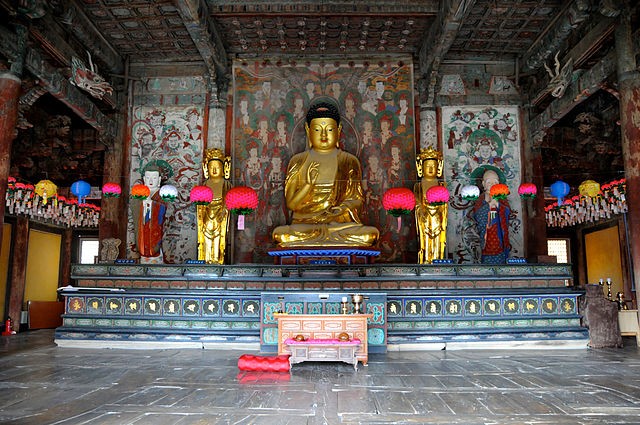 |
| Bulguksa Temple. Photo: Wikimedia Commons |
There are at least 3 cultural heritages here that have been recognized by UNESCO as world cultural heritages namely Bulguksa Temple, Seukguram Buddha Cave, Gyeongju National Park, and many other interesting attractions that even people say Even a week or a month in Gyeongju is not enough to fully appreciate the beauty of this place.
Another special feature when coming to Gyeongju is that you will see tombs scattered everywhere.
Gyeongju and surrounding areas still keep more than 200 tombs of kings.
The tombs are covered with grass and built high, from a distance you can mistake these to be hills. In particular, the most prominent here is Thien Ma’s tomb, also known as “the horse of the heavenly tomb” – the tomb of a Silla king who reigned around the 5th century,
Cheomseongdae Observatory
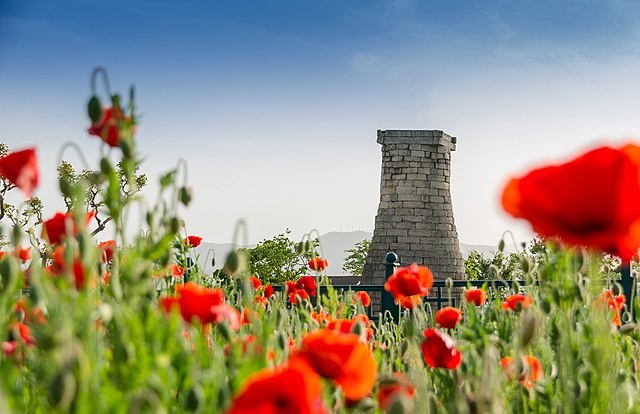 |
| Cheomseongdae Observatory – the first scientific observatory in the world built in the form of a stone tower. Photo: Wikimedia Commons |
The oldest Cheomseongdae Observatory in Asia in Gyeongju Province – South Korea is one of the interesting destinations in the land of kimchi. This is the first scientific observatory in the world built in the form of a stone tower. In addition to tour companies that regularly bring visitors to visit, this place is also a destination that attracts young people to learn history and cultural exchange.
According to history books, in the 7th century, Queen Seondeok of the Silla dynasty (632 – 647) built this observatory. The astrology tower has a stone structure that is a unique combination of ancient architecture.
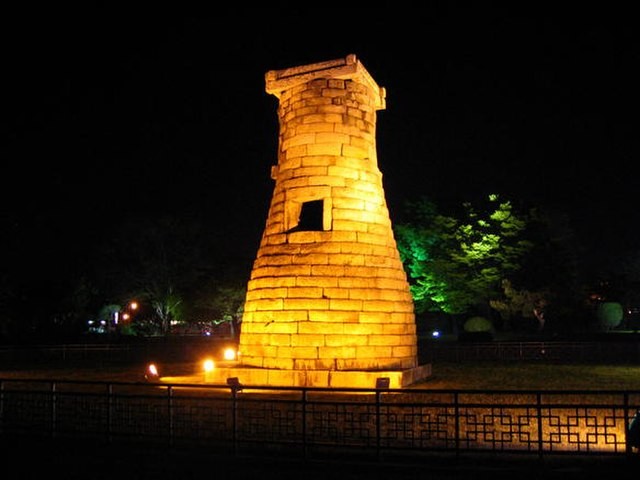 |
| Cheomseongdae observatory at night. Photo: Wikimedia Commons |
The entire observatory is 9.5 m high. This is the 31st treasure of Korea and an important heritage in the heritage complex of the ancient capital Gyeongju.
On December 20, 1962, it was recognized by UNESCO as a world cultural heritage. With the unique shape of a stone tower, the Cheomseongdae observatory – a magnificent masterpiece of the old Silla dynasty, is known as “the first and oldest stone astrology station in the history of astronomy”. world”.
As the 31st treasure of Korea, Cheomseongdae radio astrology was ordered to start construction from Queen Seondeok of the Silla empire in the 7th century.
With an altitude of 9.5 meters, it is not only an ideal place to study the stars, at sunset, this unique observatory is also the embodiment of a wonderful creation and captivates the eyes of every visitor. Today, this ancient building is also a destination for students to learn about Korean history and cultural exchanges.




